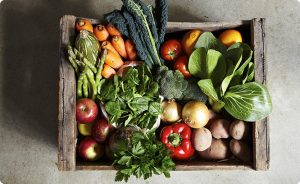Words By John Burchell. In a previous article I covered exploring our attitude towards foods and the choices we make around foods.
In this edition I will give a brief insight into the way we can use foods consciously as part of our day to day health and how we can use food as preventative and corrective medicine.
All plant derived foods have potential health benefits, especially if consumed freshly harvested. Fish and marine plants fall into a similar category also. Our bodies utilize the nutrients from foods and these nutrients form the building blocks for pretty well all of our biological requirements.
Over the past 30 years or so there has been a significant increase in the availability and prescription of nutritional supplements. The question is often asked, why should supplementation be necessary?
Modern food technologies and growing techniques have changed foods from nutrition focused to quantity of yield focused. Whilst feeding the masses is essential, these modern food practices have in many cases reduced nutritional values and absorbability considerably. Diets high in processed and modified foods often result in nutritional deficiencies, resulting in the need to supplement. There are of course many well researched medicinal uses of high concentration nutrient requirements that any amount of food cannot deliver in the time required, again making supplementation necessary.
In exploring the concept of foods for corrective nutrition, the quality and source of foods must be considered and all the foods I discuss are based on them being in their naturally occurring non modified forms.
Protein is perhaps the most important food for over all health. Plant based proteins are considered a more easily absorbed source than animal proteins, and animal sources have less compatible fat forms and have levels of cholesterol and hormones that plants don’t. The process of digesting meats also creates undesirable metabolic bi products, especially detrimental forms of acids. Tissue acidity is one of the greatest concerns in long term health problems. For the vegetarians, best sources are Legumes, WHOLE grains, nuts and seeds. Whilst Tuna is considered the richest source of protein, the highest vegetable sources, in order are beans, pepitas, sunflower seeds, almonds, cashews, tahini and chickpeas. Whilst meat is a good food source, consuming meat daily is not ideal.
Calcium – I am often asked how we get calcium if we don’t have dairy produce. The truth is that milk in it’s processed/commercial forms has poor availability of absorbable calcium. Excellent food sources are tahini, tofu, eggs, carob, nuts, seeds (especially sunflower), figs, broccoli and chic peas. Figs, tahini, carob and nut meal can be used for slices, desserts etc and provide the perfect source of calcium and potassium. These form an exceptional alkalising group also.
Zinc, Iodine, Selenium – Australia in general has low soil levels of zinc, iodine and selenium, hence so do our foods. Interestingly these are 3 of the most essential factors for thyroid, neurological and immune health. These also make up 3 of the most common diseases in weight and metabolic disorders, anxiety and depression and poor resistance to illness.
Good foods for zinc are oysters, kelp, sunflower seeds, Brazil nuts, almonds, olives, pepitas and rye.
For Selenium are Brazil nuts, sea foods and seeds.
For Iodine are Kelp, spinach, asparagus, watermelon, cucumber, seafood’s and berries.
Iron is another ‘biggy’ with meat generally regarded as the best source. Equally as good and more easily used by our bodies are shell fish, especially mussels and clams with the added bonus of the all essential marine lipids. Pepitas are also great.
Pepper corns raddish and parsnips are the forgotten super foods in combating salt and cholesterol through stimulating protein digestion enzymes and higher potassium than bananas and potato skins together! They are an excellent combination for skin, hair and nails.
To round off, is my list of easily obtainable plant world super foods:
- Asparagus, Avocado, Beetroot, Broccoli, Capsicum, Carrot, Celery, Kale, Leafy lettuces, Mushrooms, Parsnips, Pumpkin, Radish and Sweet potato.
- In the culinary herbs, Aniseed, Basil, Cardamon, Coriander, Fennel, Garlic, Ginger, Parsley and Pepper corns.
And remember when preparing foods, fresh is best!
Remember also, heat, especially frying destroys many nutritional components in foods!
